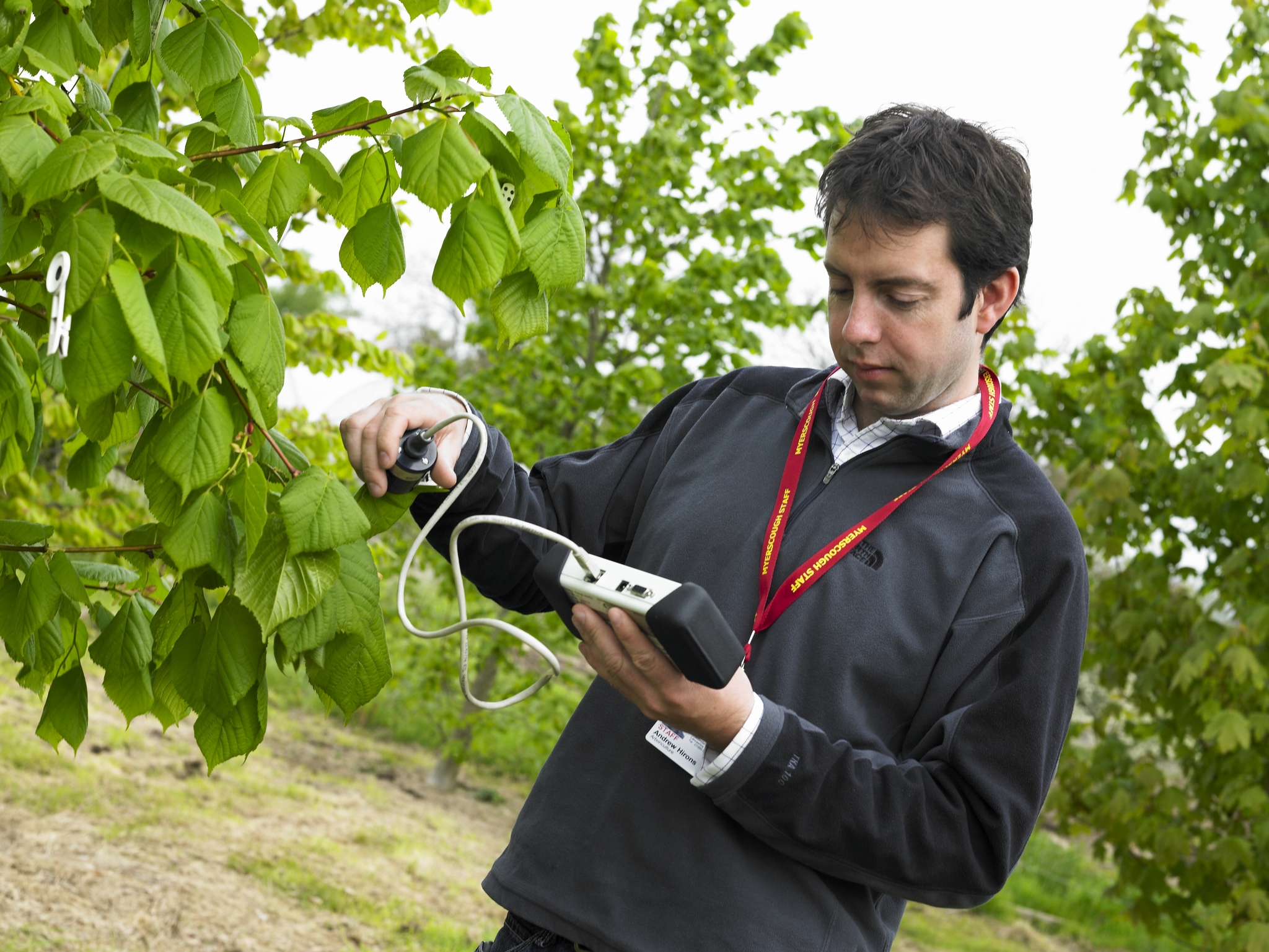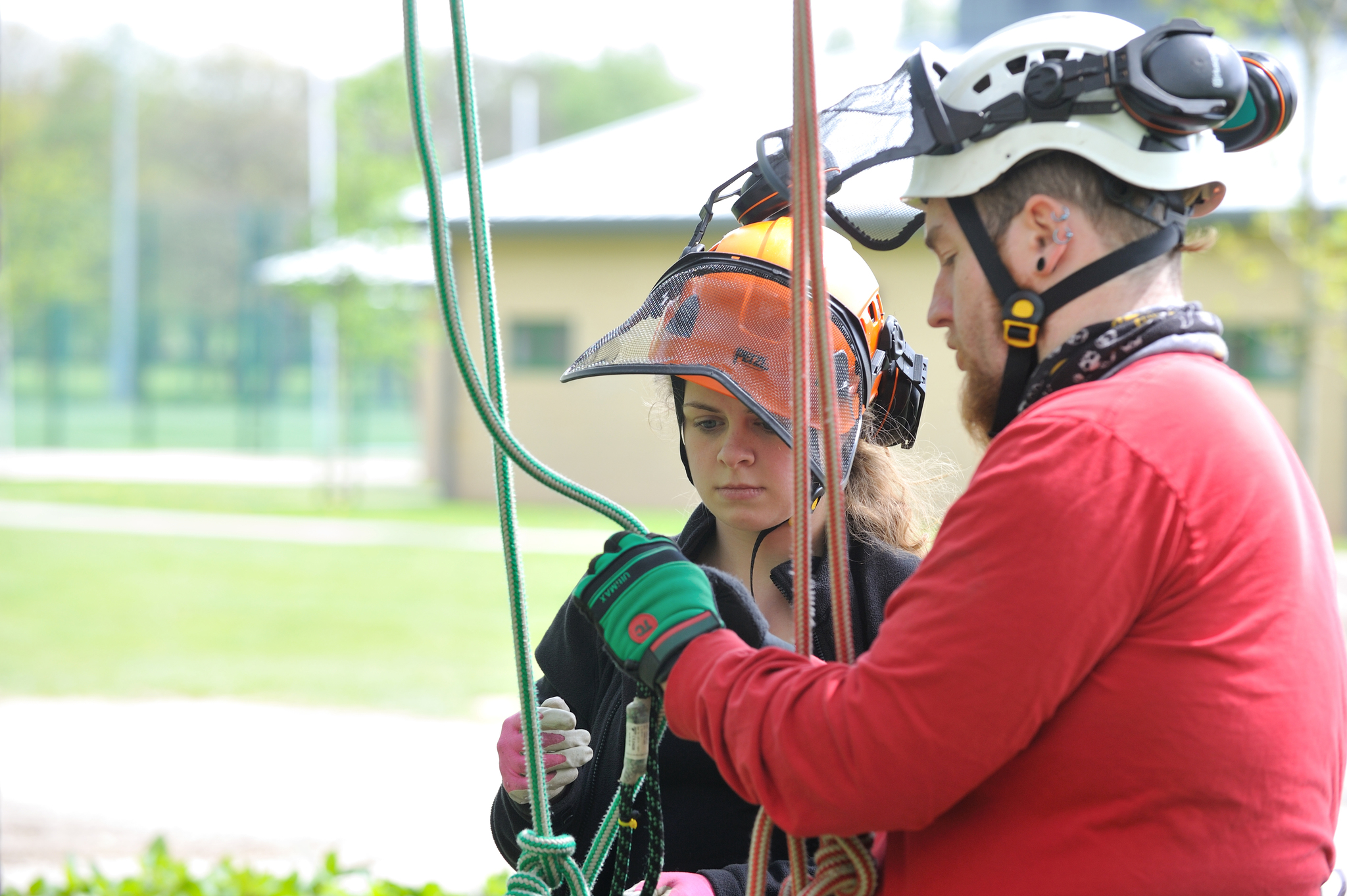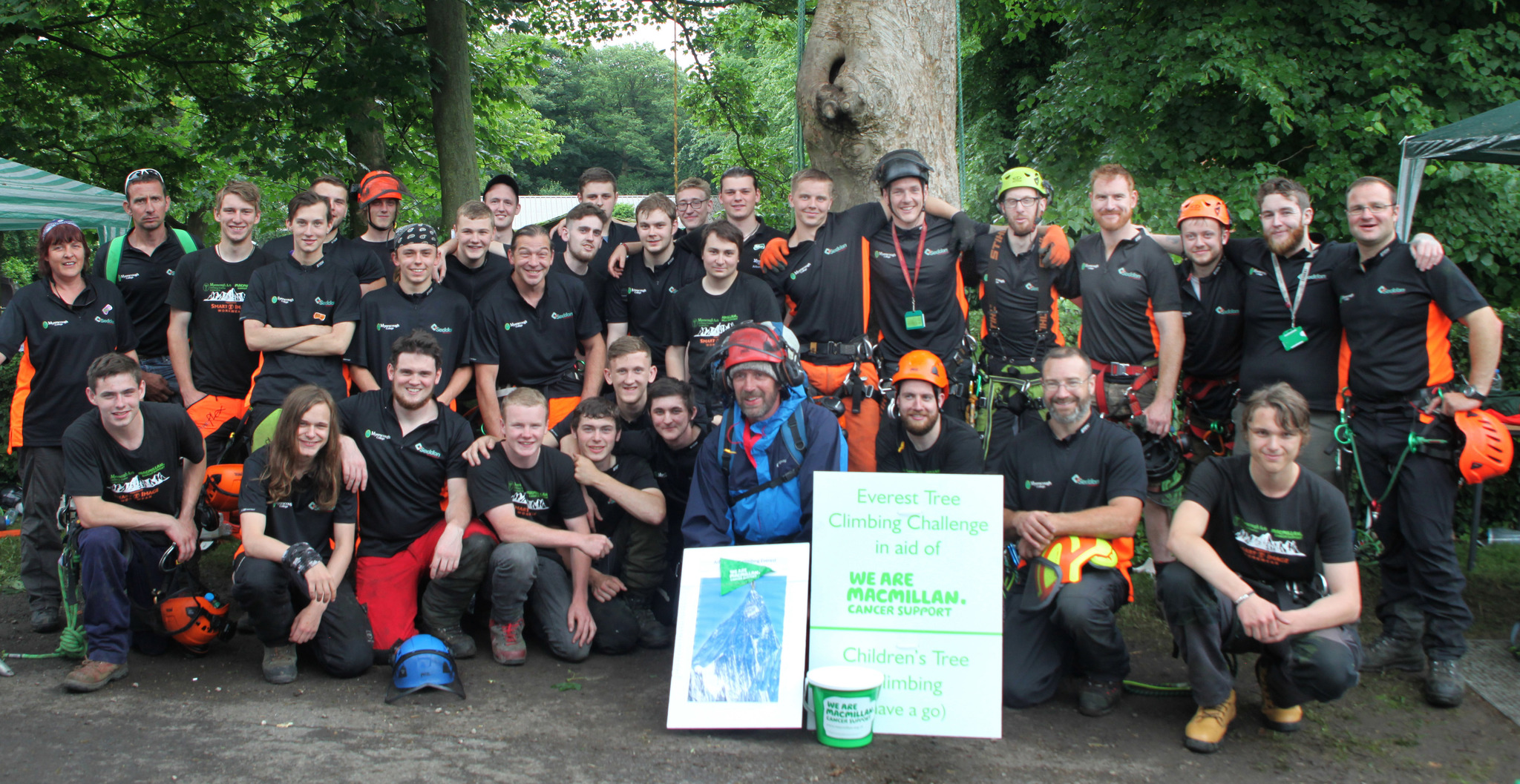Course modules
Knowledge Qualification
Working in the Agriculture, Environmental and Animal Care Sector
This module provides an overview of the diverse career opportunities within the agriculture, environmental, and animal care sectors. Students will gain insights into industry standards, job roles, and the skills necessary to succeed in these fields.
Ethics
This course examines ethical principles and dilemmas in the context of land-based industries. Students will explore topics such as professional integrity, ethical decision-making, and the impact of their work on communities and ecosystems.
Business
This comprehensive module covers the fundamentals of running a successful business within the land-based sector. Topics include business planning, marketing, management, and the strategic development of enterprises in agriculture, horticulture, and environmental management.
Communication
Effective communication skills are crucial in land-based sectors. This module focuses on verbal and written communication, active listening, and the use of digital tools to enhance professional interactions in agriculture, environmental management, and animal care.
Relationship Management
This module teaches students how to build and maintain positive professional relationships. Topics include customer service, conflict resolution, teamwork, and networking strategies, all essential for successful careers in land-based industries.
Equality
This theme addresses the importance of equality and diversity in the workplace. Students will learn about relevant legislation, strategies for promoting inclusivity, and the benefits of a diverse workforce within land-based industries.
Health and Safety
This module covers essential health and safety legislation, regulations, and best practices applicable to land-based industries. Students will learn to identify hazards, assess risks, and implement safety protocols to ensure a safe working environment in agriculture, horticulture, and related fields.
Finance
This course provides an introduction to financial management in the land-based sector. Students will learn about budgeting, financial planning, accounting principles, and the financial considerations specific to agricultural, horticultural, and environmental operations.
Information and Data
In this module, students will explore the importance of information management and data analysis in land-based studies. Topics include data collection methods, data interpretation, and the use of information technology to support decision-making and operational efficiency across various land-based disciplines.
Sustainability
This course explores sustainable practices in land-based sectors. Topics include the principles of sustainability, sustainable resource management, and the importance of integrating eco-friendly practices into professional operations across agriculture, environmental management, and animal care.
Biosecurity
This module focuses on biosecurity measures critical to arboriculture. Students will learn about the prevention and management of pest and disease outbreaks, strategies for maintaining tree health, and the protocols necessary to protect ecosystems from invasive species and pathogens.
Supply Chain
This course examines the supply chain dynamics within the arboriculture sector. Topics include sourcing of arboricultural equipment and materials, understanding market demands, logistics, and ensuring the sustainability and ethical considerations of supply chain practices.
Plant Growth and Development
This module delves into the biological processes underpinning tree growth and development. Students will study factors affecting tree health, such as soil composition, water and nutrient uptake, and the impact of environmental conditions. Practical applications of this knowledge will be explored in the context of tree planting, maintenance and care.
Tree management planning
As part of our comprehensive curriculum at Myerscough College, students delve into the intricacies of arboriculture and forestry operations, exploring how organisations in these fields obtain revenue while addressing the shared and distinct approaches. Learners will examine the nuances of health and safety legislation, regulations, and guidance relevant to tree management, ensuring a strong foundation in safe practices. Factors influencing profitable tree and woodland operations, such as market dynamics and environmental considerations, are thoroughly explored to equip students with practical insights. Additionally, the course delves into the benefits and limitations of single tree operations, offering critical perspectives for informed decision-making. Understanding tree protection legislation, including Tree Protection Orders (TPOs), and mitigating potential infrastructure damage arising from tree management activities are key components of our curriculum, ensuring students are well-prepared to navigate legal requirements and uphold environmental stewardship. Furthermore, students develop proficiency in creating and amending essential documents and plans, enhancing their ability to communicate effectively and implement strategic management practices within Arboricultural and forestry organisations.
Tree surveys and inspections
The curriculum is designed to provide students with a comprehensive understanding of tree and plant species identification, nomenclature, and taxonomy systems, laying the groundwork for informed decision-making in arboriculture and forestry practices. Through interactive learning experiences, students explore the factors influencing plant growth and development, gaining insights into optimizing tree health and vitality. Practical skills in surveying trees and tree populations are honed, enabling students to assess ecological landscapes effectively. Our program delves into the characteristics of common tree and shrub species, fostering proficiency in species recognition and habitat assessment. Ground-based and aerial tree inspection methodologies, techniques, and equipment are thoroughly covered, ensuring students are adept at assessing tree health and structural integrity using industry-standard practices. Additionally, students learn about tree valuation methods, acquiring valuable knowledge for assessing the economic value of trees and making informed decisions regarding tree management and conservation efforts.
Environment and plant health 2
At Myerscough College, our curriculum is designed to equip students with the skills and knowledge required to undertake complex arboriculture operations. Students explore the impact of fungal pathogens on trees and gain a deep understanding of how trees respond to wounding and decay. The course examines the potential environmental damage resulting from these issues, emphasising the importance of environmental stewardship in arboriculture practices. Through detailed planning and the application of effective techniques, materials, and equipment, students learn how to eliminate, prevent, or mitigate damage to trees and their surroundings. This comprehensive approach ensures that graduates are prepared to address the challenges of maintaining tree health and protecting the environment in their professional careers.
Plan for tree and site maintenance
Our curriculum at Myerscough College offers a comprehensive exploration of the factors influencing profitable Arboricultural operations, empowering students with the knowledge to navigate the changing landscape of tree management effectively. Through engaging class’s, learners investigate the influence of tree maintenance operations on tree physiology and health, gaining insights into optimising tree vitality and longevity. Additionally, students explore theories explaining the mechanical strength and integrity of trees, providing a robust foundation for informed decision-making in tree care practices. Our program also delves into the roles and responsibilities of individuals on tree work sites, emphasising the importance of effective communication and teamwork in ensuring safe and efficient operations. Students will also learn the principles of site and access management, equipping them with the skills needed to address logistical challenges and environmental considerations in Arboricultural projects. The curriculum also covers various types of infrastructure and sources of information, providing students with a holistic understanding of the diverse factors influencing successful tree management endeavours.
Perform tree and site maintenance
At Myerscough College, our curriculum equips students with essential skills and knowledge in the types of tools, equipment, and machinery required for tree work operations. Students learn techniques for manipulating soils and growing media to promote optimal tree growth. Training in tree management and maintenance operations ensures students are proficient in the latest industry practices. The program covers a variety of techniques for accessing tree canopies to perform maintenance tasks, including aerial tree rescue methods. Students are also introduced to different types of maintenance, infrastructure maintenance and repair techniques, and vegetation management strategies. Practical modules include climbing trees and performing aerial rescues, pruning trees using hand tools and associated equipment, and maintaining and repairing access routes, surfaces and structures. This blend of theoretical knowledge and hands-on experience prepares students for successful careers in arboriculture, ensuring they are well-versed in all aspects of tree care and site management.
Prepare for complex arboriculture operations
Our curriculum delves into the factors affecting profitable Arboricultural operations, providing students with the insights needed to ensure financial viability in the industry. Students study the influence of tree maintenance operations on tree physiology and health, gaining an understanding of how proper care can enhance tree vitality. The course also covers theories explaining the mechanical strength and integrity of trees, equipping students with the knowledge to assess and manage tree stability. Roles and responsibilities of personnel on tree work sites are thoroughly explored, emphasising the importance of teamwork and communication. Additionally, the principles of site and access management are taught, preparing students to handle logistical and safety challenges effectively. The curriculum includes an overview of various types of infrastructure and the types and sources of information crucial for informed decision-making. This ensures that graduates are well-prepared to manage all aspects of Arboricultural operations successfully.
Perform complex arboriculture operations
Our curriculum provides a thorough grounding in the various types of tools, equipment, and machinery essential for tree work operations. Students learn techniques for manipulating soils and growing media to promote healthy tree growth. Comprehensive training in tree management and maintenance operations equips students with the skills needed for effective tree care. The program covers techniques for safely accessing tree canopies to undertake maintenance, as well as methods for conducting aerial tree rescues. Different types of maintenance, including infrastructure maintenance and repair techniques, are explored in detail. Additionally, students gain proficiency in vegetation management techniques and practical skills such as climbing trees and performing aerial rescues, pruning trees using hand tools and associated equipment, and maintaining and repairing access routes, surfaces, structures, and furniture. This blend of theoretical knowledge and hands-on experience ensures graduates are well-prepared for a successful career in arboriculture and related fields.
Entry requirements & additional information
Entry requirements
Entry requirements for all T Levels will be a minimum of 5 GCSEs at Grade 4 (including Maths, English Language and Science).
T-Levels are available for 16 to 19-year-old students. They are also available to students up to the age of 24 who have an Education, Health and Care Plan.
Applicants for courses in Arboriculture studies are expected to show a strong commitment to the industry and a strong personal statement. Candidates must be willing to work outdoors in all weathers, work as part of a team on practical and theory tasks, work on physically demanding tasks and have a passion for the industry.
Learning and assessment
This course is designed for students who wish to develop the core practical skills and knowledge to seek employment in the Forestry/Arboriculture industry. It will prepare you for entry into a practical employment position within the industry. Alternatively, it provides an ideal progression route to higher education.
Assessment of technical qualifications is a mixture of internal practical assessment of skills conducted by the teaching team, internal written assignments marked by the teaching team, an externally set synoptic examination that combines the knowledge and practical skills of all of the mandatory units, an external online exam that combines the knowledge of all mandatory units, an online health and safety exam and a employer set project. The assessments and exams are spread throughout the two years.
Students will also receive training and assessment in a range of additional qualifications, which will enhance your employability.
Additional Qualifications - NPTC Certification.
As part of the course you will be given the option to sit NPTC assessments to demonstrate your competency in;
- Chainsaw maintenance and cross cutting
- Manually fed wood chipper
- felling trees safely using a chainsaw.
- Aerial rescue
- Chainsaw from a rope and harness
- Aerial rigging operations
The NPTC qualifications will be embedded as part of your qualification and will be delivered according to group need.
For students aged 19+ at commencement of the course a cost of £150 per assessment is payable to Myerscough College finance department before the assessment can take place.
Progression
The T-Level in Tree and Woodland Management course allows progression to;
- Advance to higher education with university-level arboriculture or forestry courses.
- Pursue professional certifications with the Arboricultural Association.
- Enter the workforce directly with the skills needed for a successful career.
Progression onto degree programmes at other universities is dependent upon their own individual entry criteria. This might include specific requirements relating to the type of course being studied, the particular ‘modules’ or ‘units’ studied on a course, the work-experience that you’ve undertaken or even previous GCSE attainment. Entry requirements can also change from year-to-year.
It is essential that, if you have a clear career goal in mind, you check and confirm the entry requirements of your preferred degree programme prior to commencing your Level 3 studies here at Myerscough. Information, Advice and Guidance will be provided by the College to support you in making the right choices, but please ensure that you have taken time to consider your future career goals and the specific entry requirements at other universities. The UCAS website is a good starting point: https://www.ucas.com/
Careers
Employment opportunities in the Arboriculture and forestry industries are currently excellent. The T-Level in Tree and Woodland Management course provides the qualifications and experience for entry into the industry at an operational level with future prospects for management. These include positions such as
- Climbing arborist
- Grounds person
- Linesperson
- Self-employed arborist/ forestry worker
- Tree surveyor
- Arboricultural contractor.
Special requirements
Mandatory items are as follows
- Chainsaw protective trouser ranging from £100-£350?
- Chainsaw protective boots ranging from £100 - £350 ?
- Chainsaw protective gloves Approx. £50 ?
- High visibility shirt Approx. £20 ?
Optional
- Climbing helmet with Chipper spec ear defenders approx. £100?
All these items are needed in the first few weeks of college starting; however, we often get suppliers in who offers students discounts. We also attend trade shows where students can get discounts on all the above items.
Work experience
As part of your course of study you will be expected to undertake an Industry Placement with an employer in the Arboriculture industry. This position is a mandatory requirement of this qualification and will provide you with invaluable insight as to the work you can expect to undertake following your time in study.



